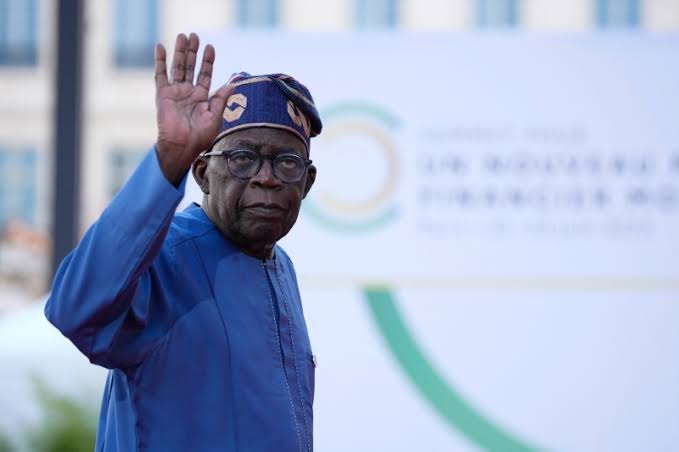Nigeria’s president, Bola Tinubu, was on Sunday elected as the Chairman of the Authority of Heads of State and Government of the Economic Community of West African States(ECOWAS).
Based on the ECOWAS Revised Treaty 1993, the Chairman play a key role in conflict resolution and advocacy, among others, within the region.
Advertisement
The treaty stipulates the agreement that is binding on the regional blocs’ 15 member states (Ghana, Senegal, among other West African countries) as agreed to and signed by their respective presidents at the time.
Tinubu emerged as ECOWAS Chairman at the 63rd extraordinary session of the regional bloc as convened by the immediate past Chairman, President of Guinea Bissau, Umaro Embalo.
The aim of ECOWAS “is to promote co-operation and integration, leading to the establishment of an economic union in West Africa in order to raise the living standards of its peoples, and to maintain and enhance economic stability, foster relations-among Member States and contribute to the progress and development of the African continent.”
The office of the Chairman shall be held every year by the occupant and Tinubu, in his acceptance speech, promised to engage with his African counterparts to “take democracy seriously.”
Advertisement
He will apparently be leveraging the power conferred on his position as Chairman.
According to Article 9 of the Revised Treaty, the Authority of Heads of State and Government of member States, which is currently being chaired by Tinubu, is the supreme decision making institution of the west African bloc.
Part of Tinubu’s responsibility would be to rally members to determine the general policy and major guidelines of the Community and give directives, harmonise and co-ordinate the economic, scientific, technical, cultural and social policies of Member States.
While the members shall adopt certain decisions, the Executive Secretary of the bloc will then forward it to the chairman to sign before it can be enforced.
The treaty reads in part: “Decisions of the Authority shall be binding on the Member States and institutions of the Community, without prejudice to the provisions of paragraph(3) of Article 15 of this Treaty.
Advertisement
” The Executive Secretary shall publish the decisions thirty (30) days after the date of their signature by the Chairman of Authority.
“Such decisions shall automatically enter into force sixty(60) days after the date of their publication in the Official Journal of the Community.”



